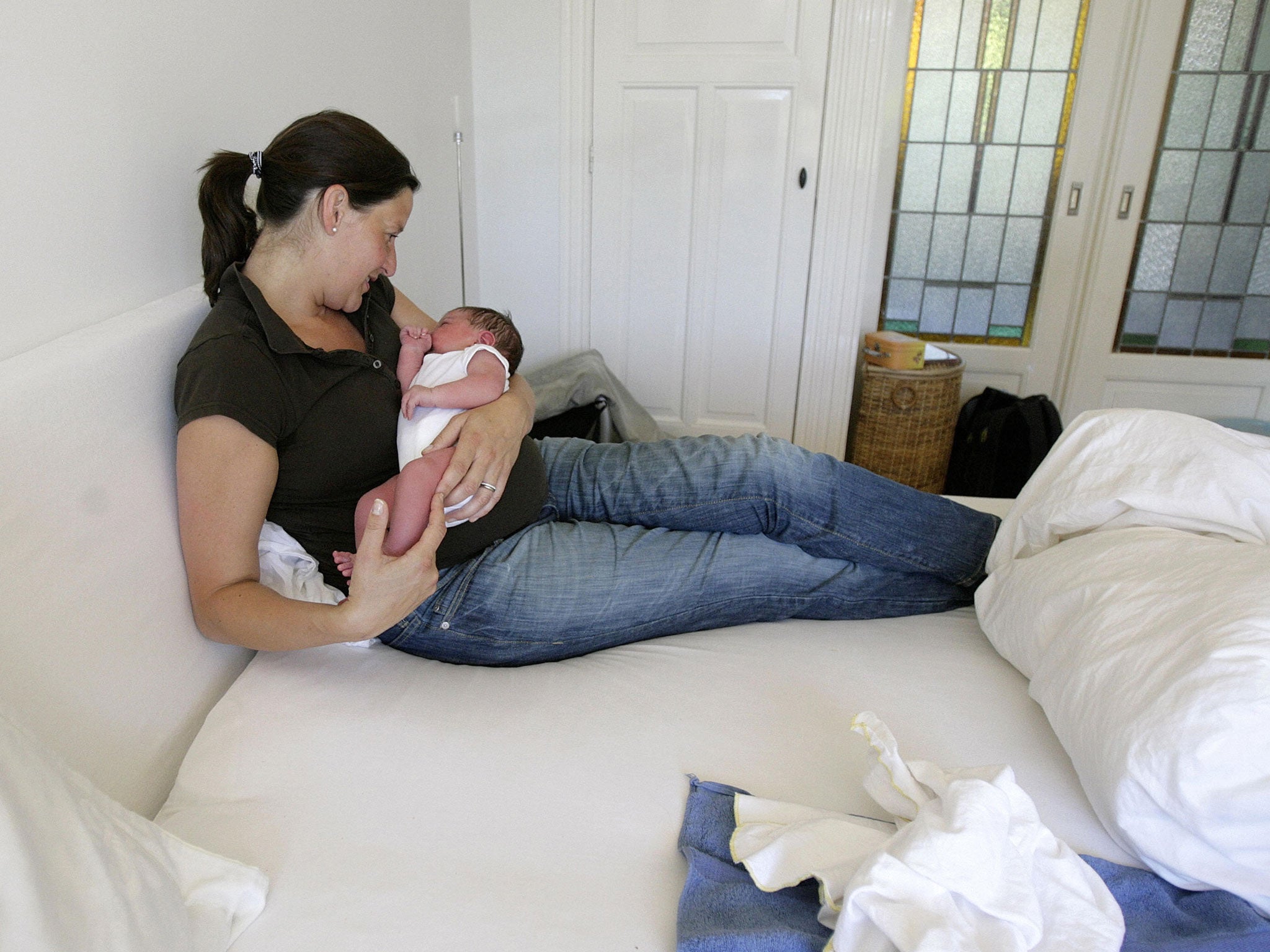Mothers don't have the 'right' to a home birth
Childbirth is an unpredictable event, and things can go wrong with alarming speed. I have seen some dire outcomes where women opted for a home birth, against advice

Home birth is receiving a lot of attention internationally at present. Tomorrow on 10 September, the European Court of Human Rights will hear argument in a case brought by two Czech women, who complain that they were denied a home birth service.
Last Friday, the Irish High Court decided not to award substantial legal costs against an expectant mother, Aja Teehan, who challenged the Health Service Executive (HSE) for not offering her a home birth service. She lost her case.
Mrs Teehan was refused a home birth because she had previously had a Caesarean section. According to the HSE, this put her at unacceptable risk. Ms Justice O’Malley concluded that Mrs Teehan could not force the HSE to assume a risk, which it considered was better avoided.
The problem with a “right” to a home birth is that, as the Irish have found, it has to be qualified to make it practicable. Inevitably, this generates arguments about where the balance should be struck. The European Convention on Human Rights does not spell out a right to healthcare, still less a right to a home birth. So the Czech case is likely to focus on arguments about how the local service was configured, and whether arrangements could be more transparent. The European Court is likely to pay lip service to Article 8, the clause that governs the right to respect for one’s private life, without forcing a state to provide a home birth service on demand.
In the UK, attitudes to home birth have shifted markedly over the years. When the NHS was set up in 1946, health boards were required to ensure that they employed sufficient midwives to attend women at home: as depicted in the popular Call the Midwife TV series. But when the NHS was re-organised in 1977, responsibility for maternity care was transferred to NHS hospital trusts, which (not surprisingly) favoured hospital birth. Now only a tiny percentage of pregnant women choose to deliver their babies at home. So, should women have a “right” to a home birth?
Some would say: “Yes.” It is commonly agreed that a low risk healthy woman has a reasonable chance of giving birth safely, with a minimum of intervention. But childbirth is an unpredictable event, and things can go wrong with alarming speed. In my practice, I have seen some dire outcomes where women opted for a home birth, against advice.
Some births in hospital can go wrong too, as the vast costs of clinical negligence illustrate. There is also an argument that the “ safety first” culture of hospitals means that some women experience unnecessary interventions.
It is Government policy that women should be offered choice in childbirth. This does not create a legal right, however. In fact, there is no legally enforceable right to any specific form of healthcare on the NHS, as such. Under section 3(1) of the NHS Act 2006, the Secretary of State for Health has a very wide discretion. So, in relation to maternity, the law requires him to provide “to such extent as he considers necessary to meet all reasonable requirements — (d) such…services or facilities for the care of pregnant women…as he considers are appropriate as part of the health service.”
As any lawyer will tell you, words like “reasonable” and phrases like “as he considers necessary” provide a fair amount of leeway. Obviously, the state must provide a safe, competent maternity service, but how it is configured in practice is left to individual hospital Trusts, and Clinical Commissioning Groups (CCGs). So it is up to local populations, if they want a home birth service, to lobby their CCGs.
Clearly, if a local NHS provider has a policy of offering home birth services to low risk women, such women would have a reasonable expectation that the service was, in practice, available. Such an expectation may be enforceable in court by what is called “judicial review.” But a Trust may have a defence if, for example, it has staff shortages.
A woman wanting a home birth has the option of hiring an independent midwife. However, now that EU law is making professional indemnity insurance compulsory for healthcare professionals, independent midwives will have to get indemnity cover to continue practising.
The Nursing and Midwifery Council (NMC), which regulates midwives, says that if there is conflict between service providers and a woman’s wish to birth at home, the midwife has a duty of care to attend the woman. This has put some midwives in a dilemma. Must they attend a home birth, even when their NHS employer doesn’t agree? The NMC says that they should. Indirectly, it seems, a woman could require attendance at home by this route; whether she would be wise to do so is another matter.
Join our commenting forum
Join thought-provoking conversations, follow other Independent readers and see their replies
Comments
Bookmark popover
Removed from bookmarks